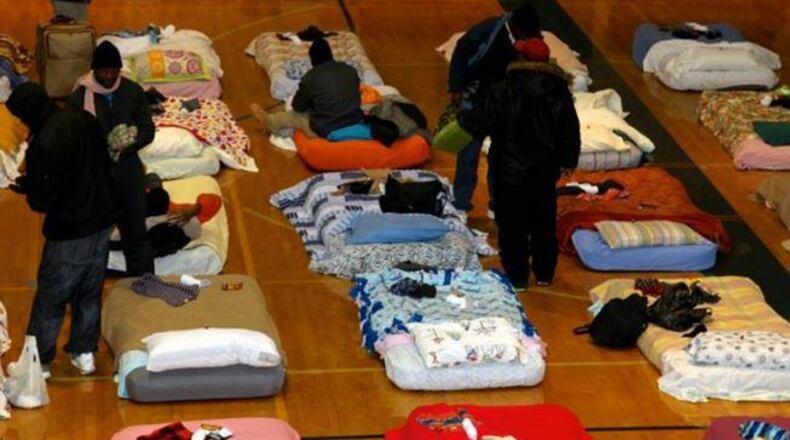In a letter to supporters that was sent out Thursday, Fugate wrote that last week SHALOM was told the city of Middletown, under the direction of City Manager Paul Lolli, was making plans to begin sheltering the homeless this winter.
Lolli, in an email to The Journal-News, said on “numerous occasions” over the past several months the city attempted to make contact SHALOM leaders to determine if they were organizing a warming center this winter.
When Lolli didn’t receive an answer, he directed Police Chief David Birk and Jeri Lewis, the city’s intern special projects coordinator, to work with community churches and other organizations to formulate a plan for a warming center.
Lolli said six local churches have committed to serve as warming centers and 10 other churches have offered support by providing meals and volunteers. He called the response “very positive.”
Councilman Rodney Muterspaw, who dealt with the city’s homeless population as police chief, called the situation “unfortunate” because the city reached out to the churches for assistance because that’s where it starts, with the community, not the government.
“We simply could not wait on an answer because cold weather will be here before we know it,” he said.
Fugate said city leaders have always been thankful for the services provided by SHALOM since the group was founded by Roy and Pat Ickes in 2002.
“The city has nothing but the greatest respect and admiration for SHALOM and appreciate all they have done for the homeless and the Middletown community,” Lolli said.
Fugate said he was always told the city “did not desire to be in the homeless business,” but now that the city has received millions of dollars in American Rescue Plan Act (ARPA) funds, some of which have to be directly used regarding the homeless, the city has determined it “should be in the homeless business,” Fugate wrote.
Lolli said he didn’t want to respond to Fugate’s accusations.
After being closed the last two years due to health concerns related to COVID-19, SHALOM had planned to reopen this year, Fugate said. The organization had recently received the approval to invite the homeless into First United Methodist, 120 S. Broad St., where its intake office is located.
“Things were looking very positive for serving our guests this winter,” Fugate wrote. “We have attempted to be a very bright light in a world that seems to be getting darker and darker.”
Fugate said SHALOM does not believe the city’s involvement in a homeless service that has been freely provided by SHALOM and the churches for the past 19 years is in the “best interest” of the homeless, the city of Middletown or its taxpayers.
He said Lolli has been told that SHALOM will “graciously step aside and not compete or stand in the way” of the city’s efforts to begin a homeless service.
“There is certainly not a need for both of us to operate in similar manners and we believe that by doing so it would only create more conflict,” Fugate wrote. “Once again, it was difficult not to fight against the city in this matter considering how they have handled this matter. SHALOM has been blessed to have a great reputation for doing things the right way and fighting the city would not be the right thing. We are certainly disappointed, and even heartbroken, but will continue to pray for our communities homeless and less fortunate.”
SHALOM volunteers will continue serving the unhoused breakfast from 8:30-9:30 a.m. every Monday, Wednesday and Saturday at First United Methodist Church, according to Fugate.
Last winter, the city of Middletown, through a grant, funded a warming center that was run by Erica Norton, executive director of the Healing Center. The city paid $95,000 for the group to operate the center for 90 days, but the center closed after 60 days over a contract dispute with the city.
Then last month, a representative from Coalition for a Healthy Middletown made a presentation to City Council asking the city to purchase three Dignity Buses for $360,000 that would provide the unhoused a nightly warm place to sleep during the winter.
Each Dignity Bus holds up to 20 people, offers toilets, space for luggage, pets, said DeAnna Shores, program coordinator for the coalition. The coalition hopes to obtain three buses, one for men, one for women and one in case of overflow, Shores said.
City Council has not voted on any legislation related to the buses.
“Dignity buses are not the answer,” said Zack Ferrell, a first-year council member. “We can’t afford to attract and take care of other cities unhoused. We can help our own, but we don’t want to be the regional draw.”
Birk estimates there about 200 unhoused people living in Middletown and about 50% are from outside the city. He said many of the homeless come to Middletown from surrounding Butler County communities.
About the Author

